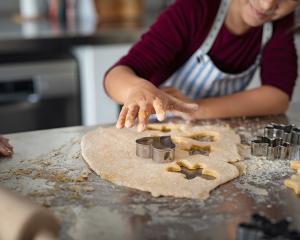
I was having a bit of a cleanout last weekend and came across a piece of somewhat dated but interesting research.
It was a 40-year American study that ran from the 1940s to the 1980s yet, despite its age, it seems to me still to be relevant.
In an effort to understand juvenile delinquency, a long-term study of 456 teenage boys from inner-city Boston was undertaken by psychiatrist George Vaillant.
After initial interviews, the subjects were re-interviewed at ages 25, 31 and 47.
When they were compared at middle age, one fact that stood out was that, regardless of intelligence, family income, ethnic background or education, those who had worked as boys, even at simple household chores, enjoyed happier and more productive lives.
The men's mental health scores were compared with their boyhood activity score.
The latter was determined by their involvement in such things as part-time jobs and household chores.
They found that those highest on the boyhood activity scale were twice as likely to have warm relations with a wide variety of people, five times as likely to be well paid and 16 times less likely to have been significantly unemployed.
Those who had worked least in childhood were far more likely to have been arrested and 10 times more likely to have been mentally ill.
IQ, amount of schooling and social and economic class seemed to make no real difference to how the boys turned out.
According to Vaillant, the boys who worked in the home or community gained competence and came to feel they were worthwhile members of society.
Since they felt good about themselves, others felt good about them.
Here's another dated but relevant comment. Nineteenth-century writer and social thinker John Ruskin said that the highest reward for a person's work is not what they get for it but what they become by it. This should be the philosophy behind setting chores for our youngsters.
Chores can be the building blocks for teaching them responsibility. They learn how to organise themselves, set goals and work through concrete tasks step by step. These skills grow and develop as they do and as their lives become more complex and they have more abstract things to deal with.
Their contributions to the running of the household, as long as they are recognised of course, help establish their sense of being a valued member of the family.
They have learnt about teamwork, responsibility, reliability and co-operative effort. They are capable in so many ways and have the skills to fend for themselves.
What a great preparation for life to give them.












